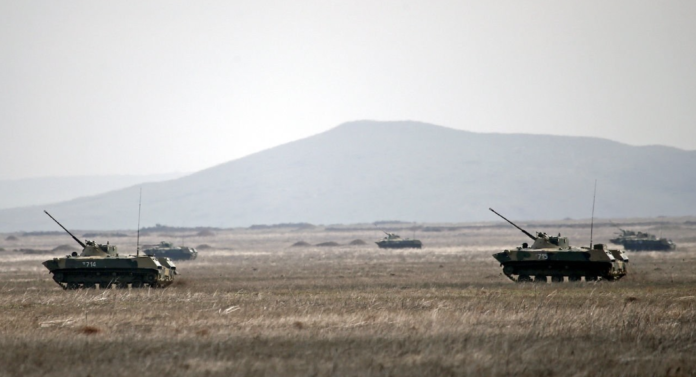By Sylvie Croteau
A recent buildup of Russian military forces along the Ukrainian border has stoked fears that The Kremlin is preparing for a large-scale invasion of its neighbor. Although the Russian leadership including President Vladimir Putin have denied such plans, many western heads of state have raised alarms.
Russia shares deep cultural, linguistic, and economic ties with Ukraine, dating back to their shared history in the USSR and under the rule of the Romanov Dynasty. Moreover, Ukraine is key to the Russian’s government’s view of its role in global geopolitics. To many Ukrainians, shared history is seen as Russian justification for territorial ambitions. “They stole our past,” said Alyona Getmanchuk, director of the New Europe Center, a pro-Western think tank in Kyiv. “Now they’re trying to steal our future.”
However, close ties to Ukraine are not the sole motivation for Russian intervention. Among Russia’s top stated concerns is the welfare of ethnic Russians living in Ukraine. According to a 2001 censu, approximately eight million ethnic Russians live in Ukraine, almost one fifth of the total population. Moscow has claimed a duty to protect these people as a pretext for its actions in Ukraine. Russia also historically acting as Ukraine’s principal trading partner. With Chinese exports and imports now surpassing Russo-Ukrainian trade, the Russian government has indicated a desire to turn Ukrainian purchasing towards its single market, the Eurasian Economic Union, which currently includes Armenia, Belarus, Kazakhstan, and Kyrgyzstan.
Russia’s desire to invade also has roots in Cold War tensions. Many Russian politicians viewed the break with Ukraine following the collapse of the Soviet Union as a threat to Russia’s political standing. Not only did Ukraine separate from Russia, but Ukrainian politics began moving closer to western ideology, a shift perceived by many as a major blow to Russia’s control over Eastern Europe. After Ukraine’s pro-Western revolution in 2014, Russia invaded and then annexed the Ukrainian peninsula of Crimea and began an ongoing separatist war in East Ukraine. Russian President Vladimir Putin has sought to prevent Ukraine’s drift toward the West, and has voiced growing anger towards the eastward expansion of NATO and the United States’ training and arming of Ukrainian soldiers. The conflict in Ukraine is viewed by some as part of a renewed geopolitical rivalry between western powers and Russia, with Ukraine presenting an opportunity for Russia to reassert its geopolitical dominance.
